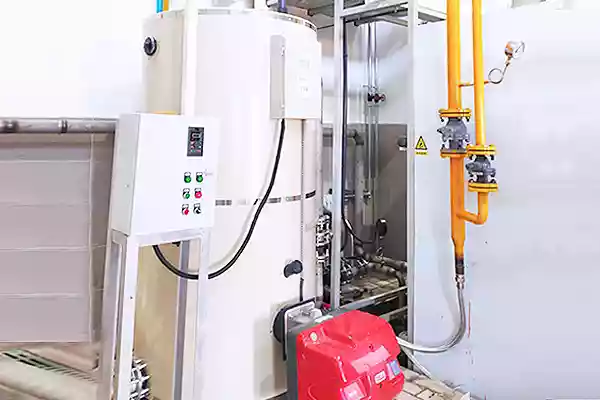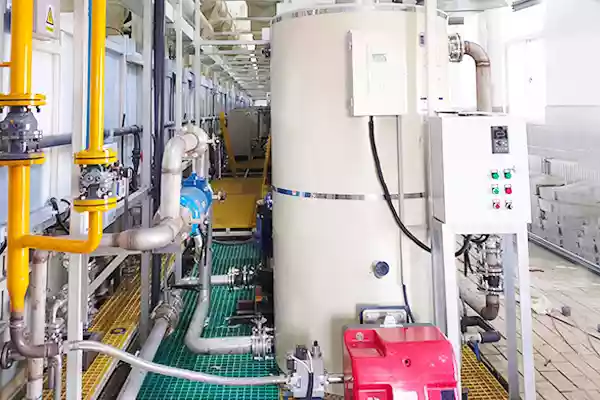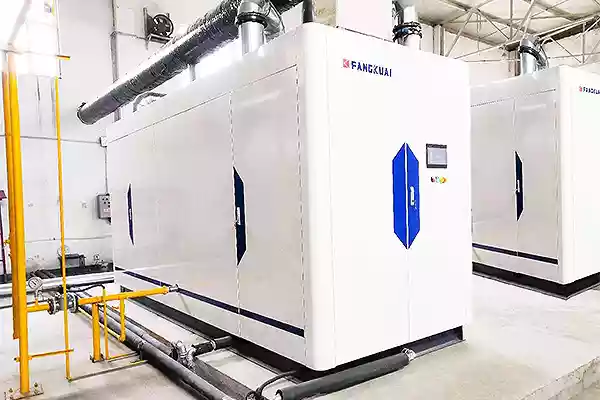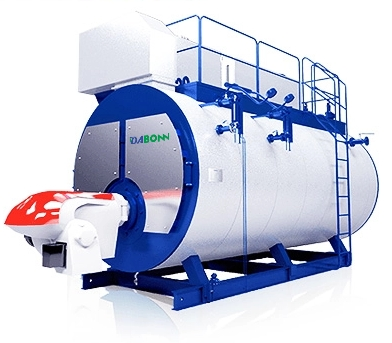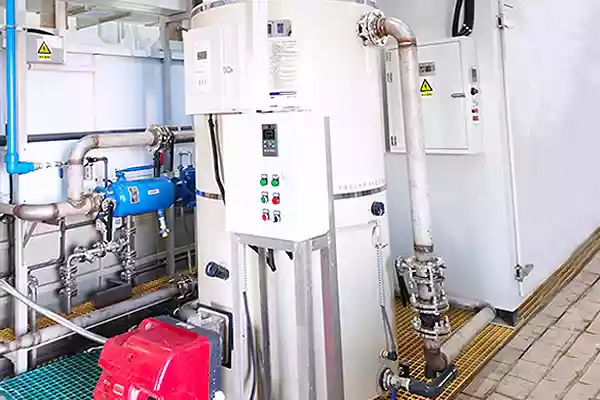
Introduction
Both the furnace and boiler can provide heating and hot water for your home. In this article, we will introduce you in detail what is the difference between them, and help you to make a good decision when choosing them.
How to work.
Both boiler and furnace can be used to heat your home, but they work differently. A boiler heats water directly using electricity or fuel (like natural gas), which then transfers heat into your home through radiators or convectors. On the other hand, furnaces use electric elements in their burners to generate an air stream that circulates throughout your house via ductwork.
Heat Difference.
In both cases, heat is produced by burning fuel. But there are some differences in how they work. A furnace is a closed system that uses air to burn coal or oil, whereas a boiler uses steam (water heated to its boiling point).
A boiler can produce more heat than a furnace because it’s an open system — the heated water goes into pipes that circulate through the home and provide warmth throughout it. Boilers also use less fuel than furnaces because they’re more efficient at producing hot water than heating systems are at producing warm air throughout your house.
Efficiency Comparison.
A boiler is more efficient than a furnace. Boilers typically have an efficiency of around 90%, while furnaces are only around 65%. This means that boilers use less fuel than furnaces, which can save you money on your electricity bill and help reduce your carbon footprint.
Pros & Pons.
Pros of Furnaces:
- Less expensive to install.
- More efficient at quickly heating large spaces.
- Air filters can be easily inspected or replaced by homeowners.
Cons of Furnaces:
- Air distribution may result in uneven heating.
- Regular air filter maintenance is required.
- Potentially higher energy costs, especially if the system is not properly sized or maintained.
Pros of Boilers:
- High energy efficiency.
- More even and comfortable heat distribution.
- Lower risk of indoor air quality issues as they don’t blow air around the house.
Cons of Boilers:
- Higher upfront installation costs.
- Requires professional expertise for installation and maintenance.
- Slower heating response compared to furnaces.
Get an online fixed price in 20 seconds:
Life expectancy.
When it comes to lifespan, boilers have the upper hand. A boiler can last up to 30 years while a furnace can last up to 20 years. This is because boilers are more durable and require less maintenance than furnaces.
Application.
Furnaces are used to heat homes, businesses, and other buildings. They use electricity or gas to heat air that is forced into the home by fans. Furnaces can be either vented or non-vented (also called sealed combustion). Vented furnaces have an exterior venting system that allows them to release combustion gases through the roof of your house. Sealed combustion furnaces do not require an exterior venting system because they don’t produce any combustion gases outside of your home.
Boilers provide hot water for household needs such as bathing and washing dishes by heating water using wood or coal. These include apartments and tiny houses. Examples include apartments and small houses in rural areas, which cost less to heat than larger homes. Because of their smaller area, they operate more efficiently.
Maintenance comparison.
In general, boilers require more maintenance than furnaces. This is because boilers are more complicated machines that operate at higher temperatures and pressures than furnaces do. As such, they’re also more likely to break down due to wear and tear or an interruption in operation. On average, boilers require about $100 per year in maintenance costs (including parts and labor).
If you need your boiler repaired or serviced regularly (more than once per year), then this will add up over time as well–and it’ll be more expensive than just having your furnace serviced every year or two by comparison!
Installation.
When it comes to the installation of furnaces and boilers, it is important to note that both systems require professional expertise for proper installation. However, there are some differences in the installation process.
Furnace installation typically involves the following steps:
- Sizing: A professional HVAC technician will assess the heating needs of your home to determine the appropriate size of the furnace.
- Ductwork: If your home already has ductwork, the technician will inspect and possibly modify it to ensure proper airflow.
- Venting: For gas or propane furnaces, proper venting to the outdoors is necessary for the safe release of combustion gases.
- Electrical connections: The furnace will need to be connected to the electrical system of your home.
- Thermostat installation: The thermostat, which controls the furnace, will be installed and wired.
Boiler installation, on the other hand, involves slightly different steps:
- Sizing: Similar to furnaces, boilers need to be appropriately sized to meet the heating requirements of your home.
- Piping: A professional plumber or HVAC technician will install the necessary piping to connect the boiler to the heating system (radiators, baseboards, or radiant floor system).
- Venting: Boilers typically require separate venting, such as a chimney or a vent pipe, to release combustion gases safely.
- Fuel source connection: The boiler will need to be connected to the appropriate fuel source, such as a gas line or oil tank.
- Controls and wiring: Similar to furnaces, boilers require thermostat installation and proper wiring for control.
In both cases, professional installation is crucial to ensure safe and efficient operation. It is recommended to hire a qualified HVAC technician or plumber who has experience with the specific system you choose.
Get FREE Boiler Quotes
- ✔Get FREE Local Boiler Quotes Today
- ✔Compare The Best Prices
- ✔Save Money On Your New Boiler Today!
Monthly cost.
The monthly cost of a boiler or furnace depends on several factors, including the size of the unit and what fuel it uses. The larger your heating system is, the more expensive it will be to run in terms of energy consumption. For example, a 50-gallon hot water tank that uses propane gas would be far less expensive than one with an 80-gallon capacity that runs on electricity (and vice versa).
| Fuel | Small Furnace | Medium Furnace | Large Furnace | Small Boiler | Medium Boiler | Large Boiler |
|---|---|---|---|---|---|---|
| Electricity | $60 | $80 | $100 | – | – | – |
| Natural Gas | $40 | $60 | $80 | $50 | $70 | $90 |
| Oil | $80 | $100 | $120 | $70 | $90 | $110 |
How to choose.
The boiler and furnace both provide you with great service at home. However, there are some things you should know before choosing one over another:
- Your needs. If you’re buying a new home, consider the energy efficiency of your future home and its heating system. If you’re planning on renovating an existing house with an old furnace or boiler, make sure it will be easy to install in your home’s current configuration.
- Your space size. If you live in an apartment or condo and don’t have much room then a boiler may be better suited because they tend to be smaller than furnaces so they won’t take up too much space on your property!
- Price. Get the best price for both products by comparing offers from multiple providers and checking reviews online before making any purchases!
Conclusion
When it comes to choosing the best heating system for your home, there is a lot to consider. The two most common types of heaters are boilers and furnaces, but each one has its own pros and cons. If you want to learn about the detailed parameters and prices of the furnace and boiler, please contact us at +0086 186-2391-5479.
Looking for boilers with sophisticated manufacturing, and great quality?
Fangkuai boiler can always provide what you want.
Get your best price
Quickly compare 3 FREE quotes
- Engineer quick quote
- The overall delivery speed is fast
- Financial choice
- Low installation costs and cost savings
25 years+ of boiler R&D
More than 20 innovative technologies
